I recently finished writing my second novel and I feel like I’ve been on a long, wonderful, yet challenging journey. Even though this is my second novel, this felt like a whole new experience. I’m a better writer now, I can honestly say. In between my first book and this one I took writing courses, I learned a lot, wrote a lot, and, very importantly, I read a lot. I honed my writing process. I applied techniques I learned and was more methodical about things.
As I have a moment to catch my breath while my graphic artist finishes the cover design, I’m finding that I’m quite reflective upon the time I devoted to this book. I genuinely love my characters. I believe in my plot. The story came from the far reaches of my mind; it is of me. It was easy to write, and yet difficult to write at the same time.
As I think about the different stages and emotions I went through while writing it, I think about the moon. I’ve always been very drawn to the moon and enjoy following its phases throughout the month. I believe there’s something to its potential affect on us; if it can pull the oceans towards and away from it, what affect does it have on our physiology?
I find that thinking about the phases of writing a novel as akin to the moon phases is surprisingly natural. Here’s what I experienced during my writing process, and I’d love to hear from other authors if their experience is similar.
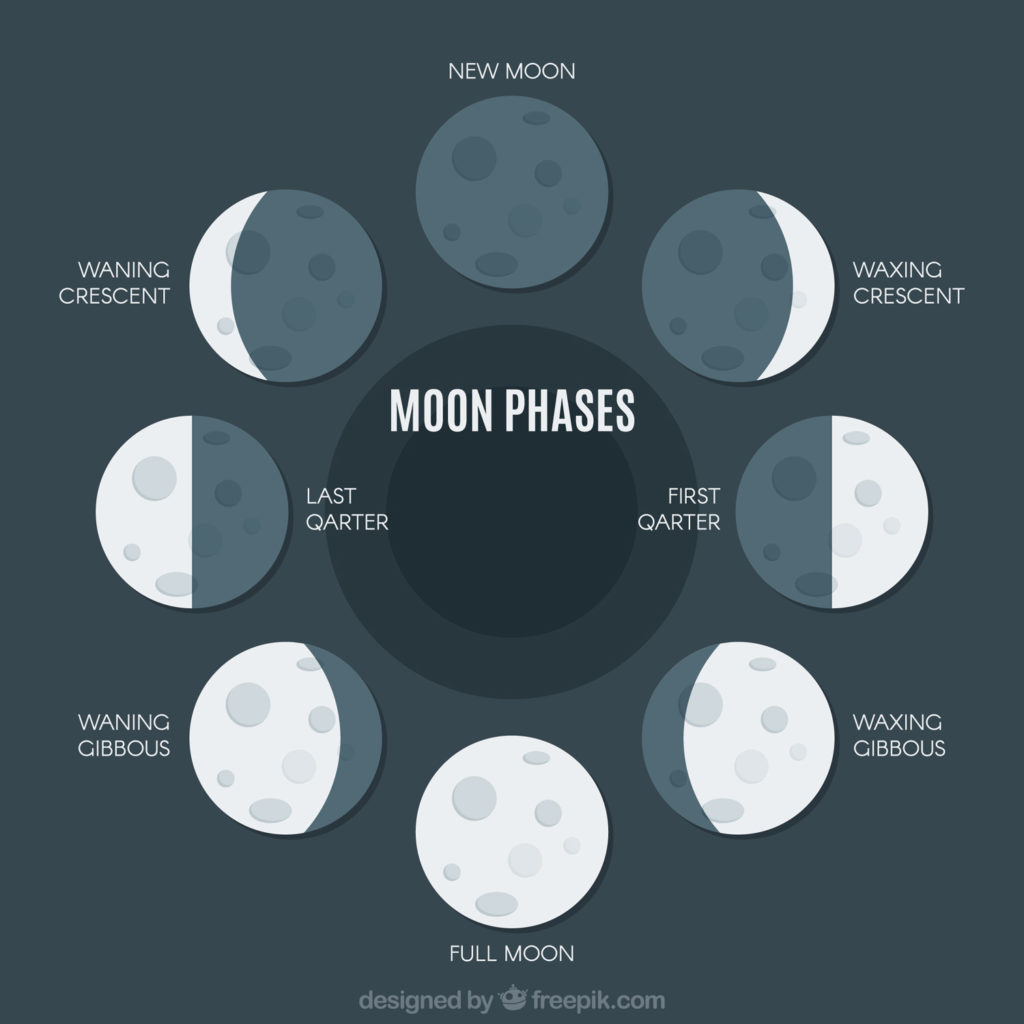 Calendar vector created by freepik
Calendar vector created by freepik
 New Moon: The Big Idea
New Moon: The Big Idea
This when the idea comes into your mind. It starts like a tiny bud on a flower stalk. Then, as you start to nurture the idea, it quickly begins to bloom into a full flower. The new moon phase is the blank slate, the blank page. Possibilities abound! You feel excitement around your idea and begin to overflow with creativity. Sticky notes with random thoughts are stuck on your desk, your bathroom mirror, your bedside table. You leave yourself audio notes on your phone when you’re driving because you have to record a thought quickly. You’re bursting with all the different ways your book could go and can’t wait to start figuring it out. Ahh, the new moon is a beautiful time in an author’s mind.
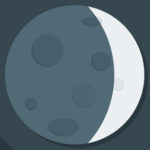 Waxing Crescent: Mad Scientist
Waxing Crescent: Mad Scientist
Just as the thin, glowing edge of the crescent moon is outlined in light, this phase is when you start to outline your plot. For some authors that means a literal outline. For others, like me, that’s just too structured and I plan it out more loosely with methods like mind maps. This phase is when the plot really begins to form, you start to focus on the setting or even world building, as well as character creation. You begin to picture your main characters in your mind. You bring them to life with your words. You begin to grow them like a mad scientist with a character petri dish.
This phase is also when you may perform research if it’s needed for your book. Imagination is first and foremost for fiction writing, but if you want to sound credible and have your story be believable to your reader, some amount of research is usually required. Some research may be around the setting and locations in your book, so that you can accurately describe them. Or, you may need to learn about certain procedures or logistics of a line of work you are writing about. Whatever it may be, I think the research stage is fun because it also leads to more ideas. You may learn something that makes you add a new angle to your plot.
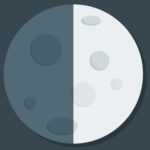 First Quarter: The Creative Zone
First Quarter: The Creative Zone
In this phase you’re a writing machine. You’re an unstoppable, creative force, pounding away at the keyword with intensity and passion.
Unless you get writer’s block. Ugh. Those days it seems as if your mind is molasses, and you can’t form a coherent sentence on the page. Try as you might, you’re stuck. I personally, don’t try to force it for too long. I walk away. Sometimes for longer than I feel ok about. But, when the lightning strikes again, you can often make up for days of not writing in one sitting. I think you just have to accept your moods and even your physical feelings around writing and know that some days it just won’t happen.
But the first quarter phase is awesome. It’s all music playlists blasting and spurring you on, hot tea refills, vodka tonic refills, and losing track of time as you write. You may even be having dreams about your book. You still aren’t worrying too much about structure, flow, or getting it all in order. You just have to get it out of your brain first. That silly structure stuff will come later (and boy, will it).
 Waxing Gibbous: Your Characters are Waiting
Waxing Gibbous: Your Characters are Waiting
Now, you finally feel as if you have something. You realize, this is real. This is a thing. This is happening. You breathed life into it, and into your characters. At one point in my writing, I started to enjoy the idea that wherever I stopped writing for the night and left my characters in the scene, was where they were frozen to the spot, and waiting for me to direct them. I found that to be a helpful trick that motivated me to write even on the days when I wasn’t completely feeling it. My characters were waiting for me. I needed to finish their story.
This is also the phase where you might start telling people about your book. Perhaps rather shyly and without much confidence at first. Everyone is different, but I know as a self-published author who writes just for fun, I had a hard time talking about my book with anyone besides my closest friends, for a while.
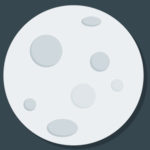 Full Moon: It’s Alivvvveeee!
Full Moon: It’s Alivvvveeee!
You’ve finished your first draft! Blood, sweat, tears, and creativity energy are baked right into it. You feel accomplished, exhilarated, and your brain is humming with delight. Your light is shining full and bright because you created something–with your mind.
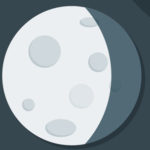 Waning Gibbous: Bravery
Waning Gibbous: Bravery
You’ve now gone through your manuscript several times, moved sections around, added or removed detail, provided flashbacks when necessary, and any other tweaks you think it needed. You have reached a point where you’re ready to hear from your target audience and see the things that you’ve been blind to because you’re too close to your story.
I’m talking about giving your manuscript to beta readers.
Scary stuff I tell ya.
This takes a certain amount of bravery. And trust. If you’ve been asked to beta read someone’s manuscript, take it as a huge compliment. It’s a tough thing for an author to hand off their baby to someone and say, “Um, here’s my baby. I grew it in my mind. Please be gentle with it, but also tell me what’s wrong with it”. Ugh, it’s tough. But this phase is so important. Your betas will point out things you didn’t even know you were doing like overusing a word or phrase, over-explaining a critical plot point, or not providing enough of a back story for a character. It’s all very helpful information that will make your book better.
While I was waiting for my beta readers, I used the time to brainstorm cover design ideas, think about promotion, and write the back cover matter.
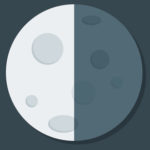 Last Quarter: Cue the Self-doubt
Last Quarter: Cue the Self-doubt
You receive feedback from your beta readers. Now you have several sets of edits or feedback to work through. You can take or leave the feedback and suggestions, it’s your vision after all. Don’t forget your vision, be true to it. You begin your editing in earnest, and continue to improve your writing, and your story. This is also where self-doubt tends to creep in . . . you begin to question some plot lines, if your characters are fully developed, and whether the whole thing is just shit. What if no one connects with this? What if someone thinks this part is stupid? What is someone doesn’t understand why I did it this way? All the thoughts. And very unhelpful thoughts at that. You have to reach a place mentally where you remind yourself why you are doing this. For me, it’s because I can’t not write. It’s in me. The stories have to come out. I adore it. It fuels me.
So, it is so.
Once I deeply acknowledged that, and that I believe in my book, I was able to let go of the self-doubt.
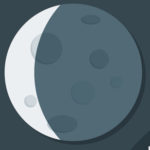 Waning Crescent: Dimmed but Not Down
Waning Crescent: Dimmed but Not Down
You’re in the thick of it. You sent your manuscript off to a professional editor, received it back and now have more to work on. It’s the last slogs of edits though–you’re close. You’re likely feeling really good about your book at this point and are getting excited to share it. But you’re also waning in mental energy. Thus, the waning crescent moon. Your light is dim because you have used so much energy editing. Editing isn’t fun. It’s necessary, but completely draining.
Cover design is likely happening in this phase as well. This is a fun thing to watch alongside of your final editing, as it reminds you of how close you are.
My final step is to have my manuscript read aloud to me, through Microsoft Word. I know my words so well at this point that I won’t notice if a word is missing, or the flow is off in one area, just by reading it again. But when you hear the words read to you, you better believe you will catch those errors.
Finished, you rest your forehead on your desk and silently thank your characters for fulfilling their destinies in the world you built.
Coming Full Circle: Releasing Your Creation to the World
Back at the new moon again, the world is full of new possibilities. You are announcing pre-orders, setting up your web pages, planning your promotion and launch, and approving the proof copy of your book that comes from the publisher. It’s an exciting time and you can finally sit back and enjoy your accomplishment. It’s in your hands, this product of your mind, your soul.
A funny thing can happen at this point . . .
If you’re like me, the new moon phase pulls my tide towards my next creative pursuit . . . the next characters waiting to be grown, and the story waiting to be told.
